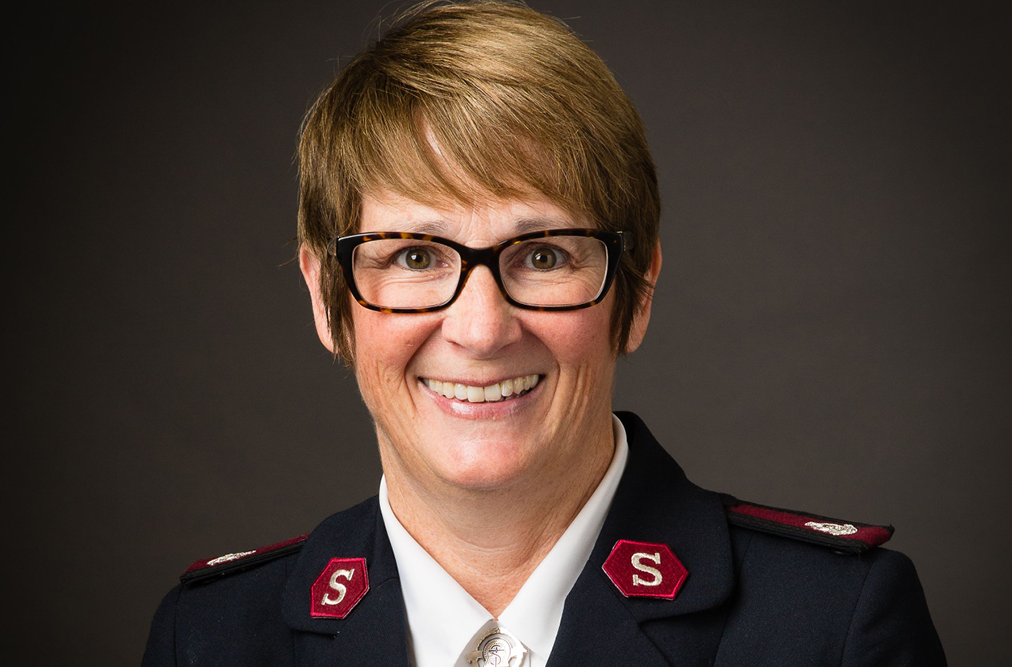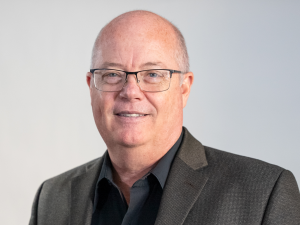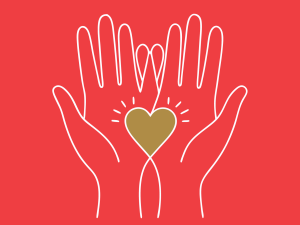Don’t only invite your friends or the rich, Jesus said in Luke 14. He said, “Make it your habit to invite the poor, the crippled, the lame and the blind. Then you will be blessed…” (14:12-14).
At about 20 percent of the population, the disabled community is the largest minority group in the world.
Yet, estimates are that 80 to 85 percent of churches don’t have any level of disability ministry.
And worse, surveys reveal most families with a disabled child do not attend church at all because they don’t feel welcome or it’s just too hard.
Major Nancy Helms is the Territorial Disabilities Ministries Director for The Salvation Army in the western U.S.
For her, it’s a role that’s also personal as she has a child who has disabilities. She is out to make sure everyone has a seat in ministry and friendship.
She’s on the show to share more about her own experience, what she wished the Church knew about loving beyond disability and practical ways we can all engage in ministry in this way.
Show highlights include:
- What the role of Salvation Army Territorial Disabilities Ministries Director entails.
- More of Major Nancy Helms’ story.
- What she has learned from her son who has disabilities through the years.
- What she wishes the Church knew about loving those with disabilities.
- What the experience of attending church with a disabled child is.
- Why disability ministry is key for The Salvation Army.
- How we make the gospel accessible for all.
- Practical ways people in the Church can support and encourage a disabled person and family.
- How she hopes to influence this area of ministry.
- What The Salvation Army stands to learn from those who have disabilities.
- How to better love in this way today.
Listen and subscribe to the Do Gooders Podcast now. Below is a transcript of the episode, edited for readability. For more information on the people and ideas in the episode, see the links at the bottom of this post.
* * *
Christin Thieme: Major Nancy, welcome to the Do Gooders Podcast today. Thanks for being here.
Nancy Helms: Hey, Christin, thank you for having me. I’m excited to share part of my journey and share in your ministry here.
Christin Thieme: Absolutely. We’re excited to have you. Can you tell us, as we start out here, what exactly does it mean and what does your role entail as the Western Territory’s Disabilities Ministries Director?
Nancy Helms: Sure. Well, I’m very new to this role and it’s a big role with a lot that comes behind it. So I’m figuring all that out. But as I see it, one of the things we want to do is bring awareness to the Church, to The Salvation Army, to the need for disability inclusion. It’s a missing element in our church and we want to figure out how to let people know that and to come alongside us and join the journey of inclusion.
Christin Thieme: Absolutely.
Nancy Helms: And also, I think one of the things that we want to do is train individuals. There’s a lot of fear behind disabilities and ministry of the unknown, and we want to bring along resources and elements of training that will help them feel comfortable being a part of the disability community. And I think the last thing we want to do, and this is probably the biggest, is figure out ways of providing opportunities for individuals with disabilities to be a part of every facet of The Salvation Army ministry, everything we do. There’s no reason why a person with disabilities should not be able to do that too.
Christin Thieme: Yeah, absolutely. And this is also personal for you. I don’t know if you mind sharing. Can you tell us a little bit of your own story?
Nancy Helms: Yeah, I’d love to. So yeah, I have a son, Cameron, who’s now 29 years old and he was born with multiple disabilities, special needs. He was born with a virus that caused profound deafness. So he uses sign language to communicate, American sign language. He has cerebral palsy on the left side of his body because the right side of his brain has significant damage. And because of that damage, he’s also severely cognitively delayed. And because of that damage, he also has a seizure disorder, which is controlled with a lot of medicines and an implant that helps regulate his brain. So it’s been a journey of many disabilities and many learning opportunities and a way to see the world and even the Church in ways I probably never would’ve if it weren’t for Cameron. So it’s been a good journey.
Christin Thieme: Absolutely. I mean, I’m sure that you could talk about this for hours, but what have you learned from Cameron through the years?
Nancy Helms: I’ve learned a lot. I’ve learned how to be a better parent. I’ve learned the true definition of unconditional love. Cameron loves without bias and he just lives life without bias. And I learn a lot by watching him do that. He has no pretenses, which I do have, so I can look at him and think I can be better. I can be more like Cameron and be a better person. I’ve learned what true endurance looks like. Cameron’s been through more than most people would ever imagine, with surgeries and bullying and a lot of experiences. And the way he perseveres through it, it’s amazing. And it’s a teaching lesson for me. And I’ve learned how to look at the world and see how many biases we do have based on how Cameron is treated compared to my other three children. And it makes me more aware of those biases, especially in the church. And it’s led me to try and figure out how to navigate beyond those biases and bring equality to this population.
Christin Thieme: From all that you’ve experienced with Cameron, with your family, what do you wish the Church knew about loving those with disabilities?
Nancy Helms: Oh, there’s a lot I wish. But I wish they’d understand what a rewarding journey it is and how much they have to receive from it. It’s not just what we give to individuals with disabilities, but more important, it’s what they give us. A lot of people approach disabilities, not just in ministry but in the world as a whole, society, with fear. I wish they’d try and get to know people because I think once you get to know a person, you realize how invalid that fear is. Because it’s not about what’s wrong with this person and how am I going to fix them, but it’s about how this person’s going to benefit my life and how I’m going to benefit theirs and mutual relationship. And I think if people would just be willing to step out of their comfort zones and try and navigate those relationships, I think the Church and the world would be a better place. I know it would be.
Christin Thieme: Yeah. I’ve seen a statistic that a large majority of families with a disabled child or somebody disabled in the family do not attend church. What do you think of when you hear that, as somebody who is so integrated into the church ministry, what do you think about and what is the experience of going to church with a child with a disability like?
Nancy Helms: Yeah. So I understand, I think that 80 percent of individuals plus their families who do have disabilities that would attend church don’t because it can often be an isolating experience, an experience where you feel like the outsider, an experience where you feel like a burden. And that’s an alarming figure, 80 percent. It’s heartbreaking. And as a parent, it’s a really discouraging situation to be in because the parent then doesn’t want to be in church either because they feel unwanted and they feel like a burden.
And honestly, especially when we’re speaking of Sunday morning church, which I think we need to get beyond too, but when we’re speaking about Sunday morning, a parent can spend that entire hour, hour and a half, worrying about their kid disrupting a really sterile environment. So in a way, we do church with backwards theology. We do it to please people. We do it as this sacred hour where there can’t be any noise or disruption. But that’s not what Jesus taught the Church is. He taught the Church, the Acts 2 Church, is a place where you come, you sit at the table together, you fellowship. You have everything in common—disabilities, non-disabilities, and you share that together. And that would be the ideal experience, but that’s not the experience of most individuals with disabilities or their families.
Christin Thieme: How do we get around that, outside of this idea that it does have to be this sterile environment?
Nancy Helms: Well, I think there’s so much to it, Christin. There’s adapting our mindsets. That’s probably the hugest thing. We can spend millions of dollars adapting our facilities and making them ADA accessible. But until we remove the barriers in our minds that disable people even more, we’re never going to get around it. So I think it’s understanding disability theology that everybody deserves a place to sit at the table. It’s that Luke 14:12-14 verse where Jesus is speaking at a Pharisee’s house. And he says when you have a banquet, don’t invite the rich people, the most important people, the people that are going to repay you. He says invite the lame, the cripple, the poor. You might not have a reward here, but you will have a return on investment down the road. But actually, I think we will have a reward here. I think the rewards are greater than we could ever imagine. So it’s just changing our mindset on why we do what we do and how we do it. And to be more inclusive and adaptive in the process so that everybody can belong.
Christin Thieme: Truly everybody.
Nancy Helms: Everybody.
Christin Thieme: We’ve been talking about the Church broadly, but when we look at specifically The Salvation Army, why is this disability ministry especially key for The Salvation Army?
Nancy Helms: Yeah. Well, I’ll start with our mission statement: “The Salvation Army is an international movement. It’s an evangelical part of the universal Christian church. Its message is based on the Bible and its ministry is motivated by the love of God. Its mission is to preach the gospel of Jesus Christ and to meet human needs in his name without discrimination.” So it’s key for The Salvation Army because it aligns with our mission to meet human needs, every human need, in the name of Jesus, without discrimination. And if we are neglecting one part of the body, then we’re neglecting a huge part of what our mission is. And it’s also key because The Salvation Army is set up in a way that we have the capability of meeting everybody’s needs in a way that they could belong. And we have so many different services we offer that I think everybody would have a chance to be included if we were willing to adapt and put our minds, and not just our minds, our hearts, it’s a change of heart too, to why we do what we do.
Christin Thieme: So what are some really practical ways, then, that people within The Salvation Army, whether they are an officer or an employee or somebody who is a member of a local corps, what are ways that individuals can practically support and encourage everybody, somebody with a disability, their family, what are some practical dos and don’ts from your experience?
Nancy Helms: Yeah, I would say the most practical way is through friendship. I think that’s what church is. It’s relationships with one another. That’s what kingdom life is. It’s not a program, which is what the Church as a whole tends to put a lot of emphasis on and the number of people that come to that program. But it’s the relationships within those programs, right? So loving our neighbor as we love God and as we love ourselves. And there’s a really good quote, there’s an author by the name Hans S. Reinders and he wrote a really good book called “Receiving the Gift of Friendship.” And it’s all about friendship and disability, which I highly recommend. He said, “The practices and politics of inclusion will not create a lasting change for persons with disabilities unless there will be people willing to invest in friendships with them. Without true friendships, disabled persons will enjoy the new opportunities created by their equal rights most likely as strangers in a strange land.”
So again, it’s not about fixing the problem. It’s joining people in relationship and becoming friends, and that’s a lot easier to do than we think it is. Cameron has a couple of friends that will take him out to ice cream or coffee or play basketball with him. And we don’t think of that as church, but for Cameron that’s church, that’s the people of God coming alongside him and sharing life with him in community. And it’s not hard. There’s no rocket science to it. There’s no curriculum for it. It’s just being with people and loving people. And I think that goes beyond disabilities. That’s for all of us. It’s being in community and relationship.
Practical dos and don’ts. Do focus on a person’s abilities. Don’t focus on their disabilities. We tend to look at the disability and think, well, they could never fit in this program because they can’t do this. But if we focus on what they can do, everybody will have a place.
Use language, do use language that is affirming. And think before you speak. There’s a lot of awful terms we use out there on a daily basis that are very offensive to the disability community. Terms like “lame.” I can’t tell you probably in a day how many times people use that term. But Jesus used that term in Scripture to refer to people with disabilities. Idiot, retarded, crazy, insane. Those are all labels that we place on criticizing people. They’re directly related to people with disabilities. So we need to be careful with our language.
Do, do educate and become aware of different disabilities and the needs surrounding them. And don’t assume you know what you don’t really know.
Do communicate and ask questions and even ask that person how they like to be addressed. Do they want to be called disabled? Do they want to be called differently abled? Do they want to be called special needs? Don’t assume everybody wants to be labeled the same. And even the first person terminology and whatnot. For instance, Cameron’s deaf. Does he want to be called that deaf person, or does he want to be labeled as a person with deafness? It changes the whole tone because then he’s not labeled as only being deaf. Deafness is just a part of who Cameron is.
And don’t assume all disabilities look the same. I think we do that often. We see a wheelchair and that’s how we define disability, but there’s so many disabilities we can’t even see. Mental disabilities and whatnot.
Don’t ever tell a person their disability is a result of their sin. I’ve heard that and it’s a very discouraging statement and we need to be really careful with that theology. And don’t try and pray a person’s disability away. Most people with disabilities, that’s how they are and they’re okay with that. They don’t want to be changed. That’s a mindset of the world that needs to be changed.
And communicate with disabled people. Find out what they want, find out what they can do, find out their likes and their dislikes. Don’t talk down to them. Those are some great dos and don’ts.
Christin Thieme: Absolutely. So as you’re getting into this role and kind of figuring everything out and looking at ways The Salvation Army can get more involved, maybe can make some changes here and there, what are some ways you hope to influence this area of ministry and some ideas of how The Salvation Army can improve?
Nancy Helms: I have some visions in my mind that I’ve written out and I think there’re possibilities that could easily become realities with the right resources and the right people pushing behind them. One of them is, I call it a seat at the campfire. Making it so that all of our camps are inclusive and so that individuals with disabilities and people without disabilities come together and camp and get to know each other and grow together in that way. And also hiring individuals with disabilities at camp to experience that. I think it’s powerful. A seat in the workforce. I think The Salvation Army is primed to be able to do job training for individuals with disabilities in a lot of our locations and sites. A seat in the band. Music is a powerful, powerful outlet for individuals with disabilities in a lot of ways, socially, developing their minds. And I think we in The Salvation Army with all the music that we have right in front of us should be able to figure out ways to include people with disabilities in that.
A place at the gym. I think our Krocs and Youth Centers are a wonderful opportunity for individuals with disabilities to belong. We could have leagues, challenger leagues. Our gyms could have adaptive equipment so that individuals with physical disabilities could also work out.
I think I have here a seat at still waters. I think we should be providing respite for parents and caretakers of individuals with disabilities so that they can have fellowship and rest without being the caretaker at the same time.
And then a seat at the banquet table, providing individuals of all abilities to enter meaningful worship through participation and acceptance. And that’s by adapting our methods and our attitudes and becoming a more inclusive sanctuary of belonging.
Christin Thieme: I love that you’ve kind of filtered all those through this idea of a seat. Just that idea of bringing people in. And like you said, friendship and relationship and just being more aware maybe, and offering that seat in all these different ways. I like that. I mean, you’ve touched on this here and there, but in your view, what does The Salvation Army stand to learn from those who have disabilities?
Nancy Helms: One of my favorite authors is Henri Nouwen. Maybe you’ve heard of him. He was a prestigious professor at Notre Dame, Yale and Harvard. And at one point in his journey, he was invited to join the large community which housed and took care of individuals with developmental, intellectual and physical disabilities. So basically he left this hierarchy the world celebrated to join the very people Jesus said should have seats upon on earth the banquet. And he wrote this in his book, “Road to Daybreak,” which is a great book if you want a good book to read, he says, “The non-contemplative life with mentally handicapped people, their gifts of welcoming me regardless of my name or prestige, and the persistent invitation to waste some time with them opened in me a place that until then had remained unavailable to me, a place where I could hear the gentle invitation of Jesus to dwell with him. My sense of being called to L’Arche was based more on what I had to receive than what I had to give.”
So what does The Salvation Army stand to learn from those with disabilities? I truly believe that we too will find a place where we can hear the gentle invitation of Jesus to dwell with him. And I think we will realize that what we have to gain will be far greater than what we have to give. And I believe that with all my heart and I know Jesus believed that and he taught that over and over again in the gospels. And I think, if we don’t get to that place, we’re operating with an incomplete body of Christ and we’re missing out on something great that God has prepared for us in our fellowship.
Christin Thieme: So we like to end this show with one tangible tip, whatever we’re talking about in that particular episode. What’s one thing that we can do today to better love people in this way. So what would be your best piece of advice in this arena?
Nancy Helms: That’s a big question. It could have many answers.
Christin Thieme: Yes.
Nancy Helms: Catherine Booth said, “If we are to better the future, we must disturb the present.” So my advice would be to be willing to disturb the way we’re doing things right now to become more inclusive. And I said it before, I’m going to say it again. I think that’s going to start with relationship and friendship. It’s simple. Maybe it’s going out for coffee. Maybe it’s crafting together. Maybe it’s going to the gym or playing basketball. Whatever it is, it’s not focusing on the differences but focusing on commonalities and establishing relationships. It’s not a rocket science answer to your question. It’s just a simple reality of life for all of us. That’s how we all grow in our faith and that’s how we all belong is through relationship together. So that would be the tangible tip. Find somebody in your community that is an outsider and help them belong through relationship.
Christin Thieme: Major, thank you so much for sharing today. And we will be catching up with you along this journey.
Nancy Helms: Thank you so much for having me and I look forward to catching up with a lot of people out there on this journey.
Additional resources:
- Read about The Salvation Army’s plans to host an adaptive camp this summer in Colorado.
- Did you know The Salvation Army served 31 million Americans last year fighting hunger, homelessness, substance abuse and more—all in a Fight for Good? Where can you help? Take our quiz to find your cause and learn how you can join in today.
- Get support from moms who are right there with you. Join the Caring Moms Collective and find a place of low-pressure, high-encouragement love anytime you need it, whether you know it or not. Get in the group today.
Listen and subscribe to the Do Gooders Podcast now.












